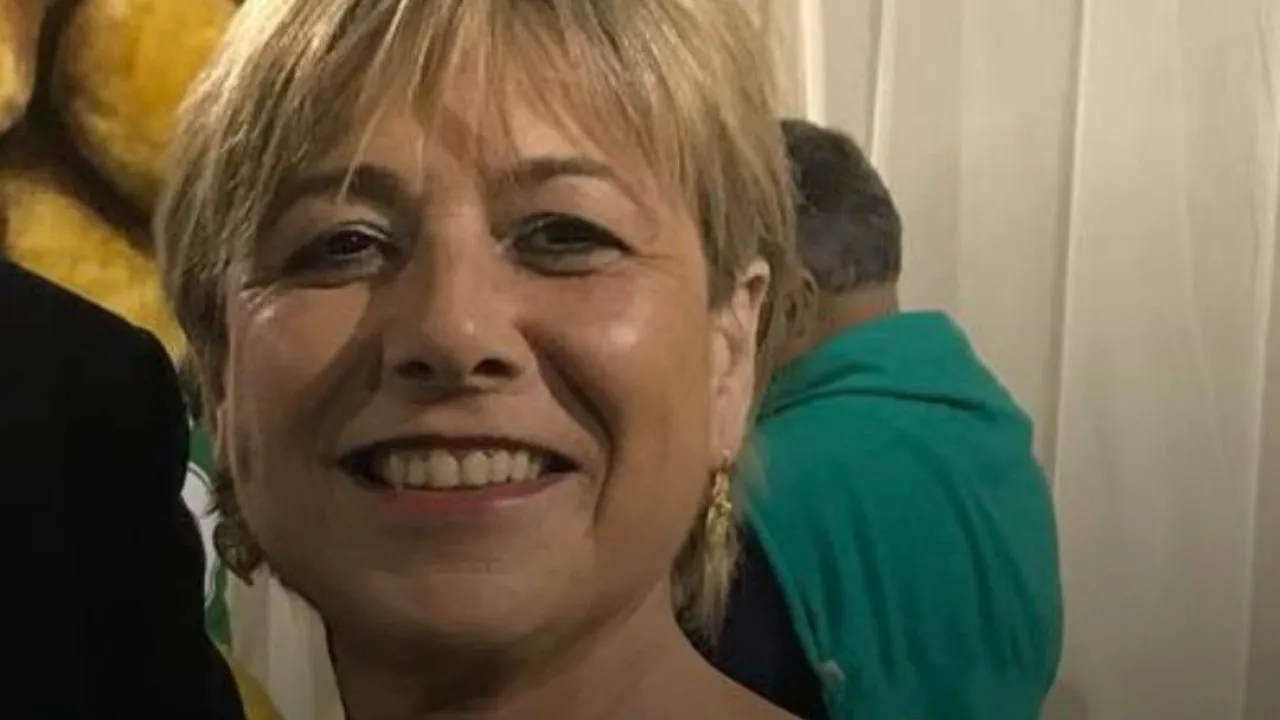
Passionately unraveling the origins and peculiarities of the Portuguese language, Marco Neves has gained popularity on social media platforms like Instagram and TikTok. The educator and translator regularly surprises his followers with insights into the language of Camões.
In an interview, Neves discussed the growing influence of English among youth, the rising consumption of Brazilian content, and the misguided perception that Portuguese is better spoken in certain regions, namely Lisbon and Coimbra.
When did your passion for words begin?
As a child and teenager, my dream was to become a historian, although I always had a strong interest in languages. I studied Languages and Literature, but my love for history lingered. Thus, my true passion is the history of languages and words.
Do your students suggest ideas for your Instagram videos?
Sometimes they do. I primarily teach translation, which combines linguistics, history, and practical elements. My students, who aim to become translators or language teachers, occasionally bring up topics that inspire my videos, though there’s no direct link.
How long have you been teaching?
Since 2011, nearly 14 years.
“I have nothing against English; it’s great that people know it, but reaching a point where the younger generation reads only in English is concerning.”
Have you noticed differences in how students adapt to university?
Most colleagues say students are less prepared, a strong trend nowadays. Students’ interests evolve, and surprisingly, many young people aren’t as tech-savvy with computers, although they handle phones well.
Regarding language, students are increasingly reading in English. This is worrying, as I have nothing against English, but it’s a concern if it becomes their sole reading language.
Why is this happening?
There’s an international community of interests. People want immediate access to books, usually available in English first. Some countries counter this by releasing translations simultaneously with or ahead of the original. English materials are more accessible and often cheaper, contributing factors.
We can complain and argue for more Portuguese reading, but the solution is publishing desirable Portuguese content with quick translations.
“We have always had a prestigious language in Portugal. During the 16th century when Camões wrote, Castilian was prestigious.”
About English expressions becoming popular?
It’s not the translators’ fault as they strive to find suitable words; it’s society’s extensive English communication that leads to such usage. Historically, Portugal embraced prestigious languages: Castilian in the 16th century, French from the 18th.
While learning English is vital, there’s a risk of our linguistic diet relying solely on it. We must preserve Portuguese while accepting inevitable English influences, staying alert to avoid losing our linguistic identity, akin to how the Galician language usage dwindled in Spain.
“In Portugal, our perspective is influenced by speaking a ‘small’ language, less spoken in Europe, causing insecurity and promoting other languages.”
The perception of Portuguese as not ‘cool’ contributes to an inferiority complex?
While we proudly claim “Portuguese is spoken by over 200 million,” it’s mainly in Brazil, South America, and Africa. In Europe, perceiving ourselves as a smaller language can make us insecure, pushing us to master other languages.
People are surprised to learn about the widespread interest in Portuguese across Europe, not just due to Brazil but also European Portuguese. In interactions, particularly in regions near Spain, locals express frustration that Portuguese speakers default to Spanish.
Sometimes we need to embrace that our language, while not the most widely spoken, holds interest for many globally, deserving some pride.
“Facing Brazilian and superior English influence, frustration arises solely toward Brazilian Portuguese.”
Regarding Brazilian influence, how do you perceive children using Brazilian expressions?
We exhibit a superiority complex about our language and an inferiority complex regarding others. Although English has a more significant impact, Brazilian Portuguese takes the blame.
If people worry about excessive consumption of Brazilian content, the solution is creating equivalent Portuguese content. Creating materials may attract youngsters.
“Some expressions might influence us, but not accents. Language pronunciation depends on social circles like friends and family.”
Predicting the Brazilian Portuguese influence on European Portuguese?
While some expressions may blend, accents won’t shift. Pronunciation evolves through interactions with friends and family. Hence, Brazilian children in Portugal typically adopt the Portuguese accent.
Concern revolves around expressions, not phonetics. Interestingly, due to the internet, some Brazilian audiences are now exposed to Portuguese influencers, offering a balanced perspective.
Though some have catastrophic views, you explained ‘Guiana Brasileira’ in a video.
[Laughs] That showcased our humor capabilities. Language discussions prove our proximity, as we still effectively communicate. This mutual understanding is why Portuguese youngsters choose Brazilian content independently.
“There’s no superior pronunciation; every regional accent is traditional, with northern ones predating southern.”
Is the linguistic superiority complex towards Lisbon accent fading?
We’re improving respect for regional accents, yet the default for media appearances remains adopting a Lisbon or Coimbra accent. This dated superiority complex mistakenly categorized these accents as the standard.
Coimbra schools once hosted the elite’s children, fostering the belief that language proficiency stemmed from there. In reality, no region speaks superior Portuguese; regional accents are historically significant, with northern accents predating southern ones.
Do broadcasters take elocution lessons to lose accents?
Dubbed diction lessons, these don’t standardize accents. Many countries, like England’s BBC, embrace diverse accents.
“If Camões landed in modern Lisbon, he’d likely have a Beira accent, surprising locals regarding his Lisbon origin.”
Is there a ‘best’ region for speaking Portuguese?
Individually, language proficiency varies. However, regional accents represent learned cultural speech patterns.
Camões’s hypothetical arrival in Lisbon would reveal an accent similar to Beira, defying assumptions about his urban origins.
With language as a living organism, do wrongly pronounced words evolve?
Speakers dictate language, evolving from perceived mistakes. Over time, linguistic features, including verb forms and pronouns, adapted from Latin, often originated as errors, frustrating some language purists.
Is there a linguistic rule you’d modify?
Facilitating language acquisition, I’d simplify dual participles, like ‘pago vs. pagado’ or ‘aceite vs. aceitado.’
“The New Orthographic Agreement aimed for consistency, yet altered established norms; resistance was inevitable.”
Do changes under the New Orthographic Agreement make sense?
Orthography planning is distinct from language rules, despite past agreements. An initiative from Portugal’s First Republic sought orthographic harmony amidst chaos.
The New Orthographic Agreement strived for uniformity but altered established norms. Resistance, understandable, emerged from this unnecessary complication, fostering three orthographic standards in Portugal, Brazil, and Angola.
With AI’s impact on writing and translation, is your translator role threatened?
Since the 1950s, machine translation faced challenges in linguistic complexity. However, advanced methods now permit reasonable automatic translations.
Technical translations often involve post-editing after initial automated processing; literary translation remains a niche.
AI enables automatic translations for certain English texts, reducing human intervention in specific contexts. For Portuguese, quality demands human review. Translators are now akin to editors, facing evolving yet persistently demanding roles. Though humorously speculating obsolescence, translators remain essential.
AI’s influence on Portuguese language?
AI affects expression patterns, prompting avoidance of AI-like phrases, e.g., excessive dashes.
In academia?
If student assignments succumb to basic AI completion, task quality falls short. Integration involves delineating AI capabilities and encouraging advanced exercises, a trend prompting renewed oral exams.
Could ChatGPT enhance Portuguese writing skills?
In certain cases, like crafting formal correspondence with government bodies, ChatGPT aids communication, proving beneficial, albeit non-substitutive for legal counsel.
Do you face resistance in your language videos?
Perceived language expertise can fuel disputes. A classic case: differentiating between vowel letters and vocalic sounds, where misleading school teachings clash with linguistic reality, surprising audiences.
What defines fluent Portuguese?
Effective communication to achieve desired outcomes, whether resolving bureaucratic issues or evoking emotions in storytelling. Grammatical norms and typography, often over-emphasized, mask fundamental expression.




